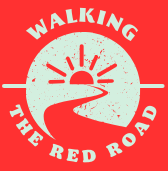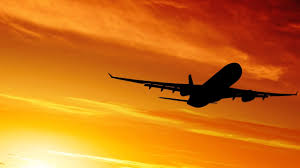Whenever I suffer from an acute case of writer’s block or feel stuck in any facet of my life more generally, the invariable antidote to unsticking myself that comes with a guaranteed, 100% success rate is to go traveling. While I may not be the kind of doctor that can prescribe medication, I am the kind of doctor who can prescribe traveling. I’ve found traveling to be one of the best medications for a whole host of maladies and malaises. Whenever you feel stuck or in a rut in your life, science says go traveling.
Traveling provides a wealth of new experiences that can directly impact our creativity. When we immerse ourselves in different cultures, we are exposed to new ways of thinking and living. Scientific research suggests that this exposure can spark new ideas and perspectives, helping us break free from creative ruts.
An interesting commonality found between successful and original people in any domain—artists, scientists, business innovators, etc.—is their willingness to step outside of their comfort zone and travel to new places far from home. As psychologist Adam Grant argues in his book Originals: How Non-Conformists Move the World, exposure to new cultures can broaden our perspectives and challenge our assumptions, leading to greater creativity and innovation. Whether navigating a foreign city, trying new foods, or learning a new language, these experiences force us to adapt and think creatively. This adaptability and openness to new experiences can translate into our creative work, allowing us to approach problems from fresh angles.
What do Steve Jobs, Google founders Sergey Brin and Larry Page, The Beatles, Pablo Picasso, J.K. Rowling, and Nikola Tesla all have in common? Their best ideas were imagined while living abroad in new cultures. Whether through science, art, music, or literature, travel has a unique ability to ignite our creative spark.
This makes perfect sense from a neuroscientific standpoint. “To see things differently than other people, the most effective solution is to bombard the brain with things it has never encountered before,” writes the neuroscientist Gregory Berns in his book, Iconoclast. According to Berns, epiphanies rarely strike in familiar places. By stepping outside of our comfort zones and exposing ourselves to new experiences, we open ourselves up to new ideas and perspectives. This creative stimulation not only enhances our travel experiences but also helps us grow as individuals, says science.
We have a saying in neuroscience, “Neurons that fire together wire together”. One of the most notable effects of travel on the brain is its ability to stimulate new connections between brain cells. Neuroscientific studies have shown that exposure to novel experiences, such as those encountered during travel, can lead to the formation of new neural pathways. These new connections can enhance cognitive function and improve learning and memory.
For example, a study published in the eminent journal Nature Neuroscience found that travel can increase neuroplasticity, the brain’s ability to adapt and change in response to new experiences. The study showed that individuals who traveled frequently had higher levels of neuroplasticity compared to those who did not travel often. Travel can help keep the brain agile and responsive, potentially reducing the risk of cognitive decline as we age.
Traveling can also have profound emotional and mental benefits that then set the foundations necessary to catalyze creativity. Studies have also found that regular travel leads us to feel happier and keep the brain active as we connect with new people and ideas. The sense of freedom and adventure that comes with travel can boost our mood and reduce stress, creating a fertile ground for creative thinking.
Furthermore, travel can provide a sense of perspective. When we are immersed in a new culture, our problems and worries back home can seem smaller and more manageable. This shift in perspective can free up mental space for creative thinking and problem-solving.
Science says that travel is a powerful tool for enhancing creativity. By exposing ourselves to new experiences, cultures, and perspectives, we can stimulate our minds and inspire new ideas. So, the next time you find yourself in a creative rut, consider taking a trip. You never know what new ideas and insights you might discover along the way.

